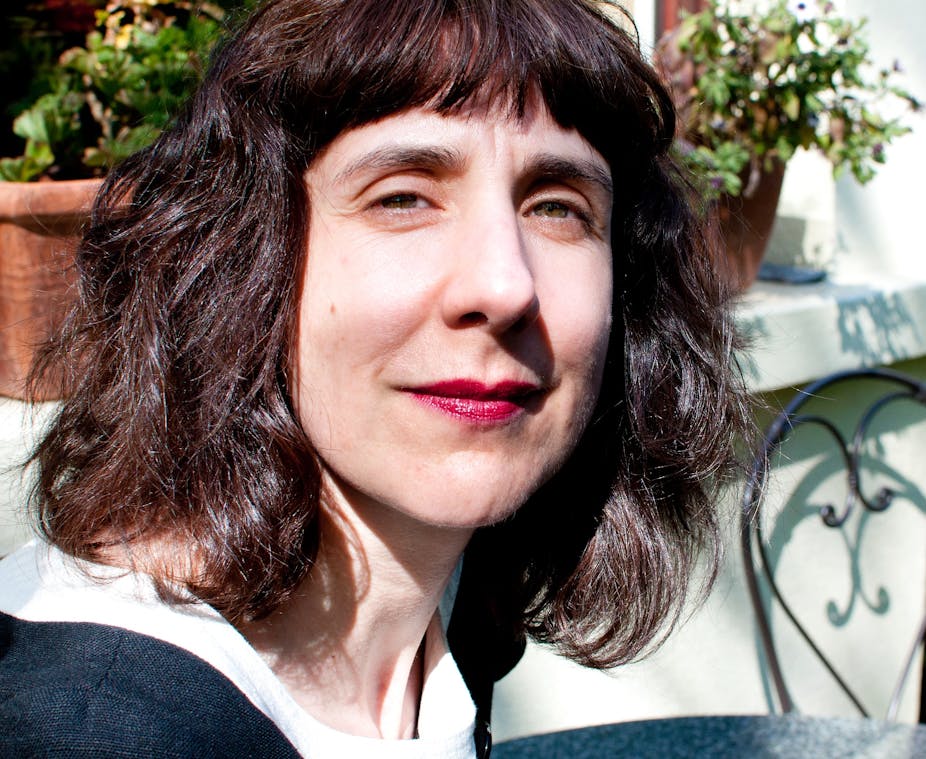The decision to award the TS Eliot poetry prize to Northern Ireland poet Sinéad Morrissey has been greeted with the usual poorly punctuated grumblings about how poetry has lost its way, together with mainly more literate muttering of conspiracy theories about how the major UK poetry presses are hogging all the big prizes.
But Morrissey, who was named Belfast’s poet laureate last year, is a worthy winner and beat off some very strong competition. Parallax, her fifth collection, was also shortlisted for the 2013 Forward Prize for Best Collection but lost out to Michael Symmons Roberts’s Drysalter.
Morrissey has been prominent this year in a city that is still feeling Seamus Heaney’s passing. Morrissey lectures in poetry at the Seamus Heaney Centre for Poetry at Queen’s University, Belfast alongside other literary heavyweights such as Medbh McGuckian and Ciaran Carson as well as talented new voices such as Paul Maddern. One cannot help but feel that poetry in the city is in good hands.
There has been, as is usual with poetry prizes, mutterings of discontent in the corners of the internet (here is a particularly cogent example). What is missing from the grumbling is the usual apocalyptic wailing about how poetry is dying without an audience that normally follows a big poetry event – perhaps due to the substantial cash value of the Eliot Prize: £15,000 – or the massive number of attendees at the prize-giving.
All of which is largely coincidental to the poetry. Parallax is very convincing. The word “parallax” is used by photographers to describe the doubling or disjunction of an image – which could refer to the fracturing effect of her cold yet sensually precise language on the skewed historicity of her subject matter. I find that the title more aptly describes the simultaneity of these poems. Morrissey’s humour, historicity and her own children come together in these deeply textured poems.
Daughter is my favourite poem in the collection. It is a portrait of her own child, a poem of five parts. Part V opens with “Timothy Leary’s/ eight circuit system/ of human evolution” and moves on to “amphetamines:/ crystal meth, benzedrine.” This is not the language of family portraiture; this is a world fraught with clinics and threat. But then, tucked into this unsentimental tapestry, we have the following lines.
Silent too long as an infant,
our daughter talks all day -
her toys, her toes,
her pictures, her minutely
attenuated hierarchy
of friends –
This image could, of course, lose itself in its own cuteness – it is affectionate and warm – but the daughter is not protected from the intellectual and physical patterns of entrapment, but rather woven tightly into the same dark textures. And straight after the dash here, the poem captures the daughter with a simile:
like a businessman
on the last train home
after one too many espressos,
trying to sell you his dream.
The simile’s transformations – of gender and age – are visually shocking, of course, but not as shocking as the morphing of a daughter to a jaded charlatan. The daughter’s wiliness and rabid will-to-live run throughout the poems in the simultaneity of the narrator’s intimacy and the darkness that invades the domestic space.
It would take a very committed ideologue to read these poems and believe that poetry is in crisis, but no doubt that claim will continue to be made. Maybe the mild hysteria that hovers around comments pages of poetry reportage is good for the industry, or at least, good for sales. I am not sure.
What is clear is that there were many great collections on the shortlist this year. It is both silly and likely true to say that many of these poets will turn up on the carousel of award ceremonies once again. These are all excellent poets. Helen Mort made the shortlist for her first collection, Division Street, and I would be very surprised if we do not see more of her in the future. But it is good to see the prize go to Morrissey this time. Her poems have always been strong – but in Parallax her humour, warmth and intellectual candour often fire off simultaneously in the poems, to thrilling effect.

